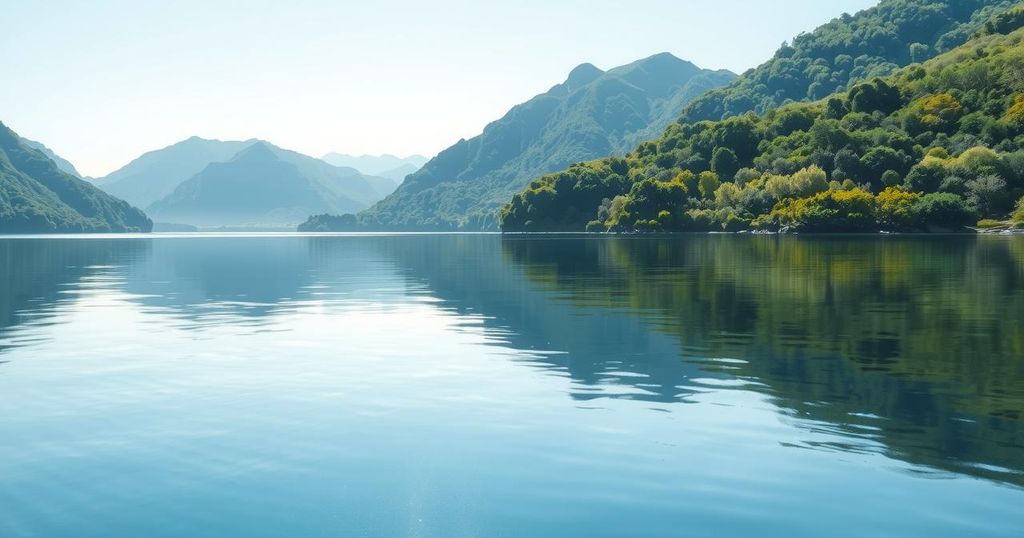ZimParks confirmed the continued fishing ban at Lake Chivero due to fish deaths caused by contaminated water. Environmentalists attribute this to industrial discharges from Harare. Investigations are ongoing, and biological remediation techniques are being researched to rehabilitate the lake.
The Zimbabwe Parks and Wildlife Management Authority (ZimParks) has announced that the fishing ban at Lake Chivero will remain enforced until the investigation into fish deaths is finalized. This decision follows a serious event last December, where numerous wildlife, including four white rhinos and three zebras, perished after ingesting contaminated water from the lake.
The environmental degradation is attributed to untreated effluent and industrial waste discharged from Harare’s households and businesses. ZimParks’ spokesman, Mr. Tinashe Farawo, noted, “Because of the good rains, the algae is clearing and there have been some improvements in the aquatic conditions for fish. However, the ban on fishing still stands.”
The ongoing research aims to explore biological remediation techniques, including the application of effective microorganisms, to rehabilitate the lake’s contaminated areas. Furthermore, the pollution, overfishing, and harmful fishing practices have negatively impacted aquatic species and their habitats, leading to long-term damage.
Originally known as Lake McIlwaine, Lake Chivero was established in 1952 primarily to supply water for Harare. The city’s rapid development has posed significant environmental challenges, necessitating stricter regulations and comprehensive studies to ensure the lake’s preservation and the safety of its wildlife.
In conclusion, the fishing ban at Lake Chivero, instituted due to substantial ecological disruptions and contamination, reflects a commitment to restoring the lake’s health. Continuous investigations and remediation efforts are imperative for the recovery of aquatic life. The situation underscores the need for enhanced environmental management practices in urban areas to prevent similar occurrences in the future.
Original Source: allafrica.com




